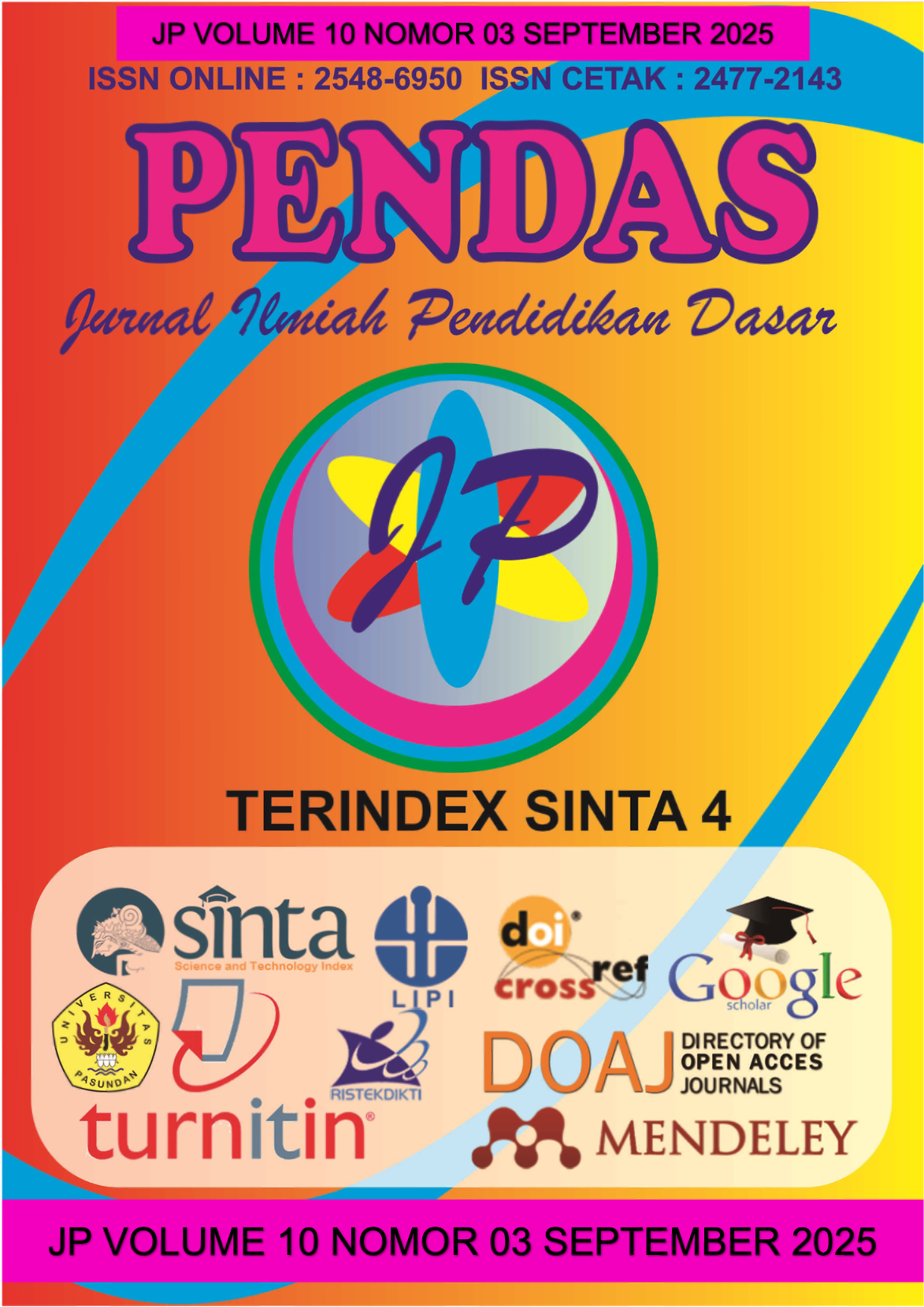EVALUASI IMPLEMENTASI PROGRAM ADIWIYATA DI SEKOLAH DASAR MULYA ASRI CIKUPA KABUPATEN TANGERANG MELALUI MODEL CIPP
DOI:
https://doi.org/10.23969/jp.v10i03.33383Keywords:
Adiwiyata Program, CIPP Evaluation, School Environment, Student Behavior, Character EducationAbstract
This study explores the implementation of the Adiwiyata Program at Mulya Asri Elementary School in Cikupa, Tangerang Regency, using the CIPP evaluation model (Context, Input, Process, Product). The research focuses on how school policies, stakeholder involvement, and the availability of facilities contribute to fostering an environmentally conscious culture. Employing a descriptive qualitative approach, data were collected through field observations, in-depth interviews, and document analysis, involving the principal, teachers, students, and school janitors. The findings reveal that, contextually, the school upholds a clear vision and mission aligned with environmental awareness. In terms of input, supporting facilities are available though not yet evenly distributed, while the active engagement of teachers, students, and staff is evident. The process dimension shows that environmental activities are conducted regularly, systematically, and integrated into learning. As for product, the program positively shapes students’ eco-friendly behavior and enhances the school’s institutional image. Overall, the Adiwiyata Program runs effectively, though continuous innovation and equitable facilities are needed for stronger sustainability.
Downloads
References
Ahmad, R. (2019). Pendidikan lingkungan hidup berbasis sekolah. Rajawali Pers.
Depdiknas. (2007). Panduan pelaksanaan program Adiwiyata.
Djunaidi, M., & Fauzan. (2012). Dasar-dasar penelitian kualitatif. PT Raja Grafindo Persada.
Emzir. (2012). Metodologi penelitian pendidikan: Kuantitatif dan kualitatif. Rajawali Pers.
Herdiansyah, H. (2016). Metode penelitian kualitatif untuk ilmu-ilmu sosial. Salemba Humanika.
Kementerian Lingkungan Hidup dan Kehutanan (KLHK). (2019). Pedoman umum program Adiwiyata. Kementerian Lingkungan Hidup dan Kehutanan.
Mulyana, N. (2015). Pendidikan lingkungan hidup berbasis sekolah: Konsep dan aplikasi program Adiwiyata. Kencana.
Sudrajat, A. (2021). Evaluasi program sekolah Adiwiyata menggunakan model CIPP. Jurnal Pendidikan dan Lingkungan, 5(1), 23–31.
Sugiyono. (2012). Memahami penelitian kualitatif. Alfabeta.
Sugiyono. (2016). Metode penelitian kombinasi (mixed methods). Alfabeta.
Syahrial, H. (2020). Implementasi model evaluasi CIPP dalam pelatihan guru profesional. Jurnal Evaluasi Pendidikan, 6(3), 101–113.
Yulia, Y., & Pujawati, N. (2016). Pemberdayaan masyarakat dalam pelaksanaan program Adiwiyata di sekolah dasar. Jurnal Pendidikan dan Pembelajaran Untag, 25(1), 1–10.
Yuliana, D. (2022). Analisis evaluasi program pendidikan karakter dengan model CIPP. Jurnal Ilmiah Pendidikan Dasar, 4(2), 45–54.
Zuriah, N. (2006). Penelitian pendidikan bahasa dan sastra Indonesia. Rineka Cipta.
Zuzana, N., & Dafit, F. (2022). Implementasi program sekolah Adiwiyata di sekolah dasar. Jurnal Pendidikan Dasar..
Syahrial, H. (2020). Implementasi model evaluasi CIPP dalam pelatihan guru profesional. Jurnal Evaluasi Pendidikan, 6(3), 101–113.
Yuliana, D. (2022). Analisis evaluasi program pendidikan karakter dengan model CIPP. Jurnal Ilmiah Pendidikan Dasar, 4(2), 45–54.
Downloads
Published
Issue
Section
License
Copyright (c) 2025 Pendas : Jurnal Ilmiah Pendidikan Dasar

This work is licensed under a Creative Commons Attribution 4.0 International License.














































